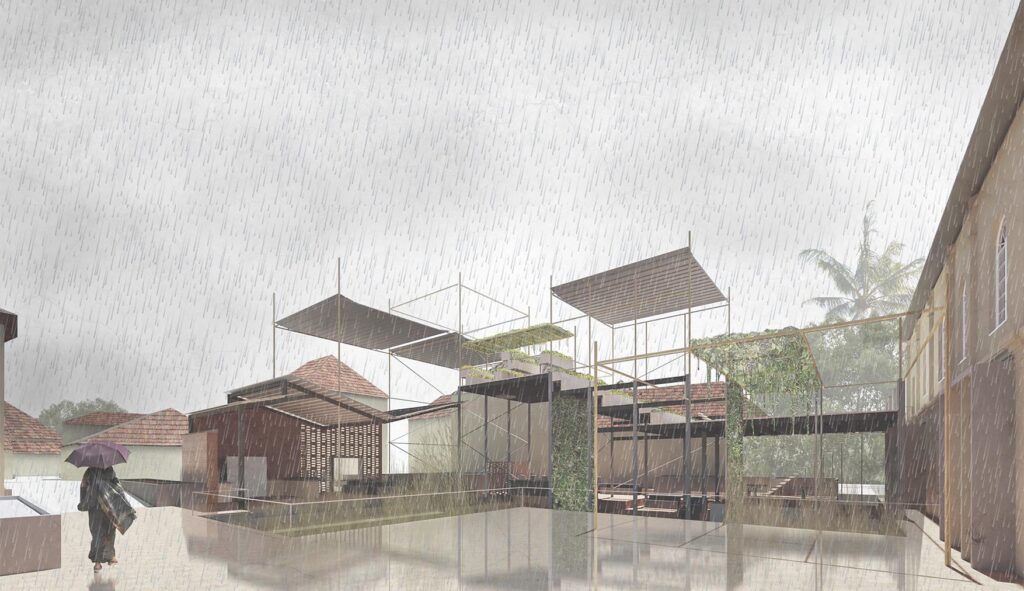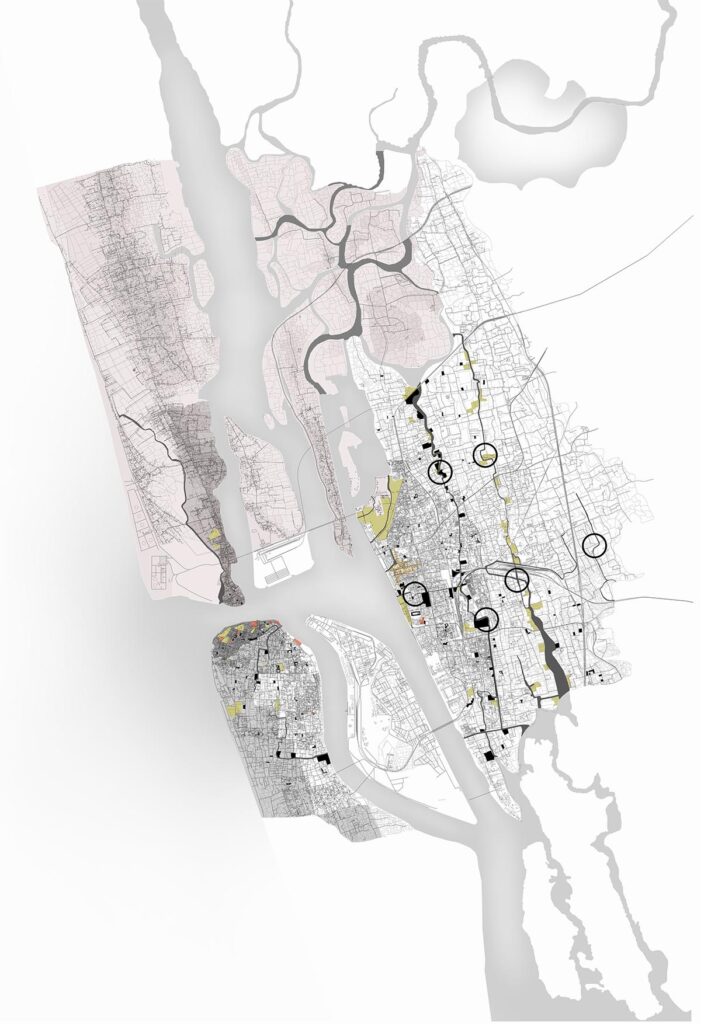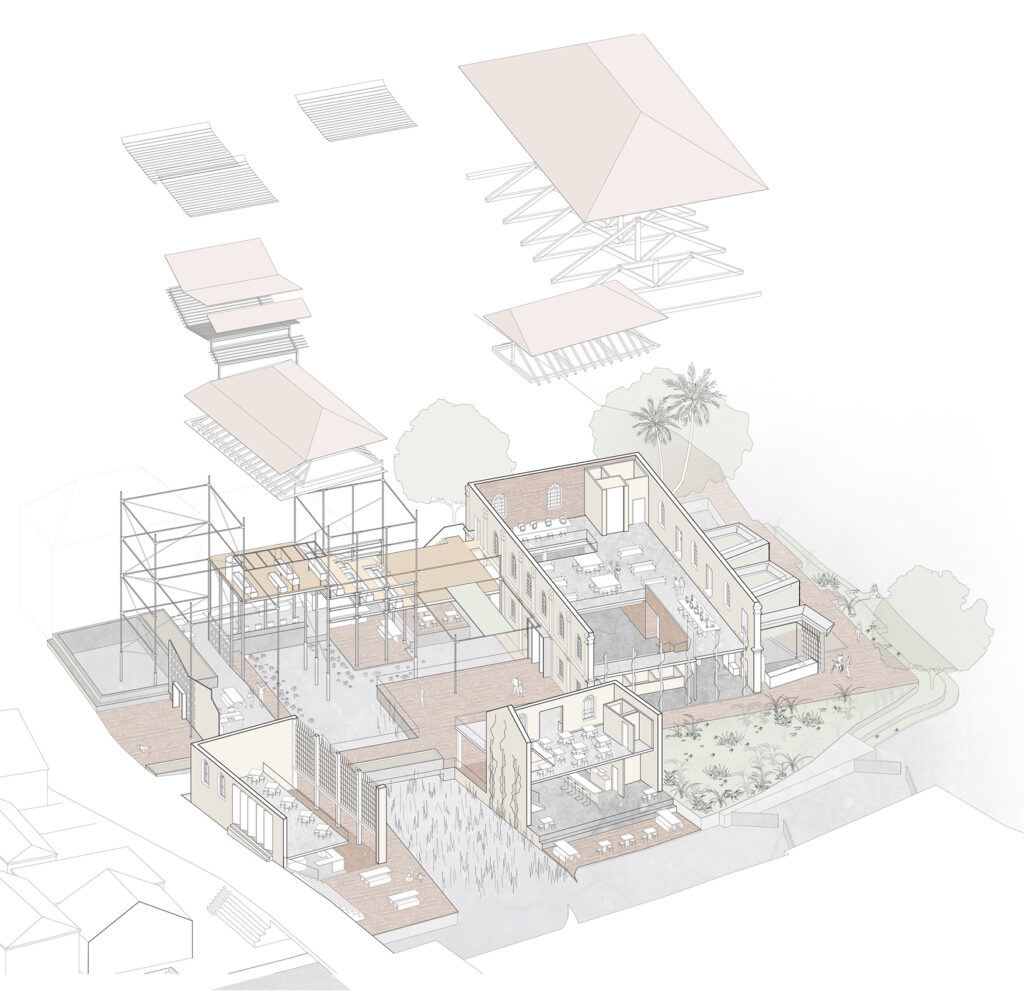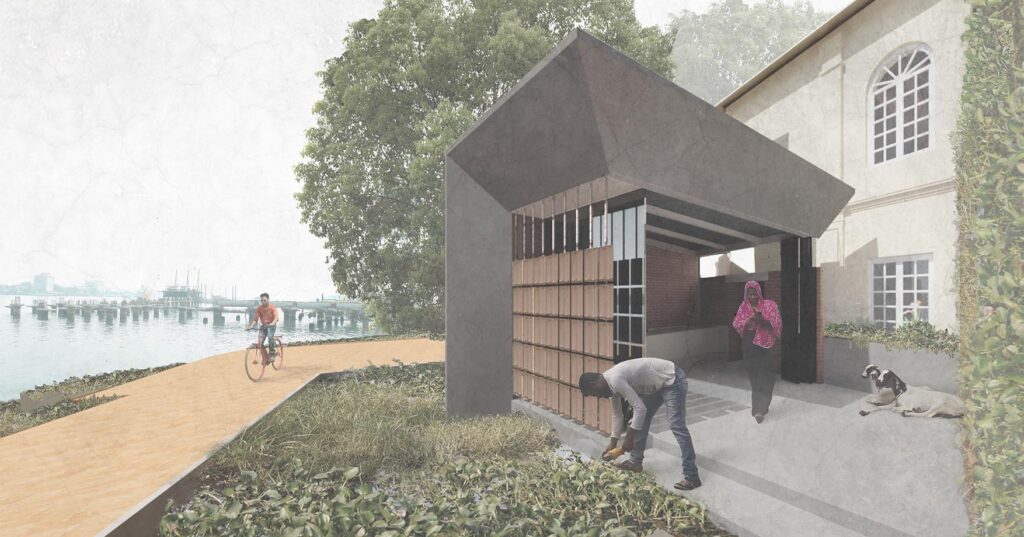“Living with the Urban Monsoon”
This thesis aims to increase resilience to floods, by protecting areas essential to water absorption through their use in agriculture and taking food production from the outskirts of the city and stitching it through the urban core.
Currently, little responsibility is felt by the citizens for the cleanliness of their water. And as the canals fill with pollution their water holding capacity is reduced, causing them to overflow. This strategy provides communal ownership of the canals for agriculture and aquaponics, which uses the water to grow food produce, giving responsibility of the canal quality to the community who profit from it.
It is a community-owned innovation space, promoting the importance of sustainable agriculture for ecological balance by cultivating, preparing and sharing aquaponic food; creating social cohesion and empowering citizens to take responsibility for their environment.

The waterbodies are surrounded by floodplains, which historically are used in agriculture, working for hundreds of years in harmony with the monsoon season. However rapid urban expansion encroaches on the flood plains essential for absorption, resulting in water-logging, reduced capacity, and the redirection of flood water into urban areas, forcing the city to a standstill.

To increase resilience to flooding, the strategy for Kochi is split into three main categories; Protecting Agricultural wetlands, Providing Resilient Infrastructure, and Revitalising Biodiversity. The impacts of this strategy are far reaching, including increased health, reduced energy needs, improved access to water, financial security for agriculture and fisheries, and access to local organic food for all.

The catalyst project focuses around education; Providing the skills and training for farmers, researching the limitations of sustainable agriculture, and instilling its importance into the community.

This scheme can inspire and empower the residents of Kochi to take responsibility for the cleanliness of their waterbodies, whilst producing enough local and organic food to supply 86,000 people annually. With large scale public health benefits, reduced pollution, absorbent wetlands, and clean canals. Helping to take control of the loss and devastation that flooding causes every year.
CONTACT EMAIL: lizziegmiller@yahoo.com
LINKEDIN: https://www.linkedin.com/in/elizabeth-miller-architecture/
Curated By Shannan Kamalaneson
